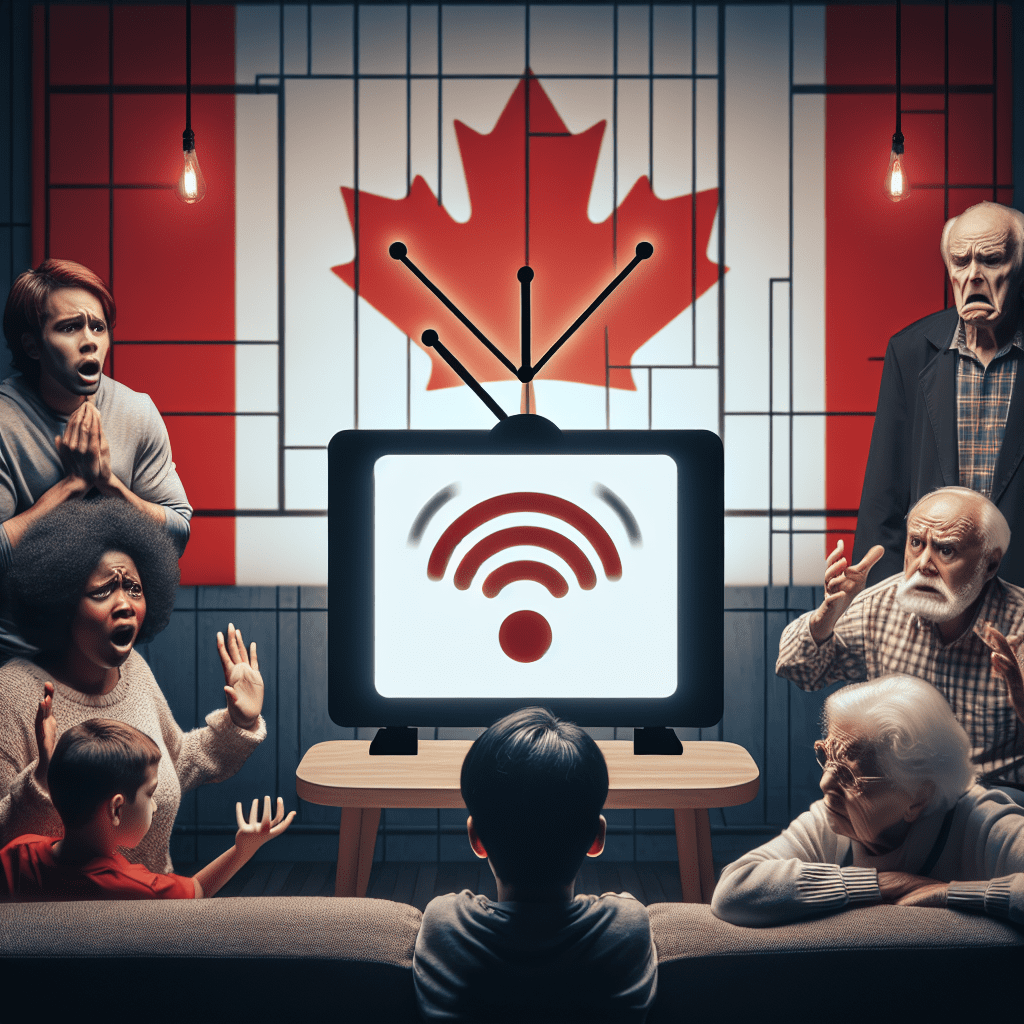In recent years, the shutdown of IPTV services in Canada has left consumers bewildered and providers scrambling to adapt. As entertainment landscapes evolve, understanding the reasons behind these closures is crucial for users seeking reliable streaming options. With many Canadians relying on IPTV for affordable access to television content, the implications of these shutdowns are profound and wide-reaching. This article dives into the intricate factors contributing to IPTV service shutdowns and examines the ripple effects on both consumers and service providers in the Canadian market.
Analyzing the Factors Behind IPTV Service Shutdowns in Canada
The closure of IPTV services across Canada can be traced to several interconnected factors. Regulatory pressures play a significant role, as the Canadian Radio-television and Telecommunications Commission (CRTC) intensifies its scrutiny of unlicensed streaming services. The rise of content piracy and unauthorized broadcasting has prompted the CRTC to enforce stricter guidelines, compelling many IPTV providers to cease operations to avoid legal repercussions. Consequently, this regulatory climate has created a precarious environment where providers face the risk of penalties for delivering unregulated content.
Another critical consideration is the technological landscape’s rapid evolution. Traditional IPTV providers often struggle to keep pace with advancements in streaming technologies and consumer preferences. As more Canadians gravitate towards legitimate streaming platforms like Netflix, Disney+, and Amazon Prime Video, the demand for illicit IPTV services diminishes. This shift not only affects the profitability of these services but also leads to decreased investment in infrastructure, further exacerbating their inability to deliver quality content.
Moreover, the financial instability of some IPTV providers has resulted in a surge of service closures. Many of these companies operate on thin margins, relying on subscriber fees to sustain their business. The combination of increased competition from legitimate services and the enforcement of stricter regulations creates a perfect storm for financial failure. Consequently, many providers have found themselves unable to recover their costs or innovate effectively, leading to inevitable shutdowns.
Implications of IPTV Closures for Consumers and Providers
For consumers, the shutdown of IPTV services can be a disheartening experience. Many users relied on these platforms for affordable access to an extensive range of channels, often circumventing the high prices associated with traditional cable services. The sudden loss of these services forces consumers to seek alternative solutions, often leading to higher subscription costs or a limited selection of content. Consequently, some viewers may find themselves reverting to cable subscriptions or exploring other streaming services that may not offer the same diversity or affordability.
The implications extend beyond mere inconvenience for consumers; they also spark a significant shift in viewing habits. With the closure of IPTV services, many users are expected to explore various streaming platforms, which can lead to subscription fatigue. As consumers juggle multiple subscriptions to obtain the content they desire, it raises questions about the overall value proposition of streaming services, potentially driving users back towards traditional broadcasting systems. The landscape is shifting, and as consumers search for alternatives, providers must recognize and adapt to these changing preferences.
From the providers’ perspective, the shutdown of IPTV services presents challenges and opportunities. While many companies face significant losses and reputational damage, there is potential for innovation and growth. Providers that can successfully pivot towards licensed content delivery and create partnerships with established networks may find a burgeoning market for legitimate streaming services. By understanding consumer needs and preferences, these companies can develop tailored offerings that not only comply with regulations but also attract viewers seeking reliable and diverse content without the fear of abrupt service interruptions.
The shutdown of IPTV services in Canada is a multifaceted issue, influenced by regulatory changes, technological advancements, and financial instability. For consumers, the impact is profound, leading to a search for alternatives that can meet their entertainment needs without breaking the bank. Providers, while facing significant hurdles, have the unique opportunity to reshape their business models for a sustainable future in the streaming landscape. As the industry evolves, staying informed and adapting to these changes will be crucial for both consumers and service providers alike. Explore legitimate options that align with your viewing habits, and remain engaged with the ongoing developments in the Canadian IPTV landscape to ensure you never miss a beat in your streaming experience.
Exploring the Impact of 40,000 Daily Steps on Weight LossEffective Yoga Poses for Optimal Weight Loss and WellnessComprehensive Reviews of Happy Mammoth Weight Loss ProgramRelevant LinkRelevant LinkRelevant Link




